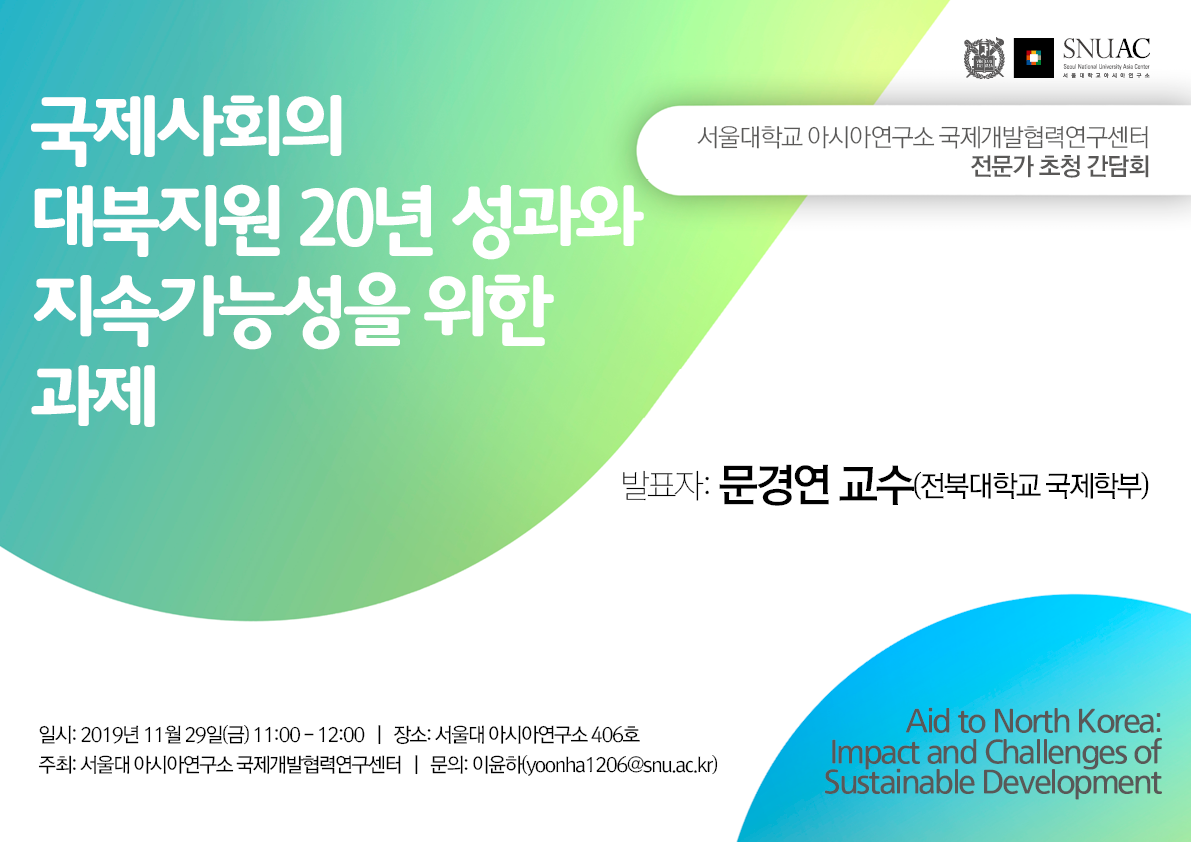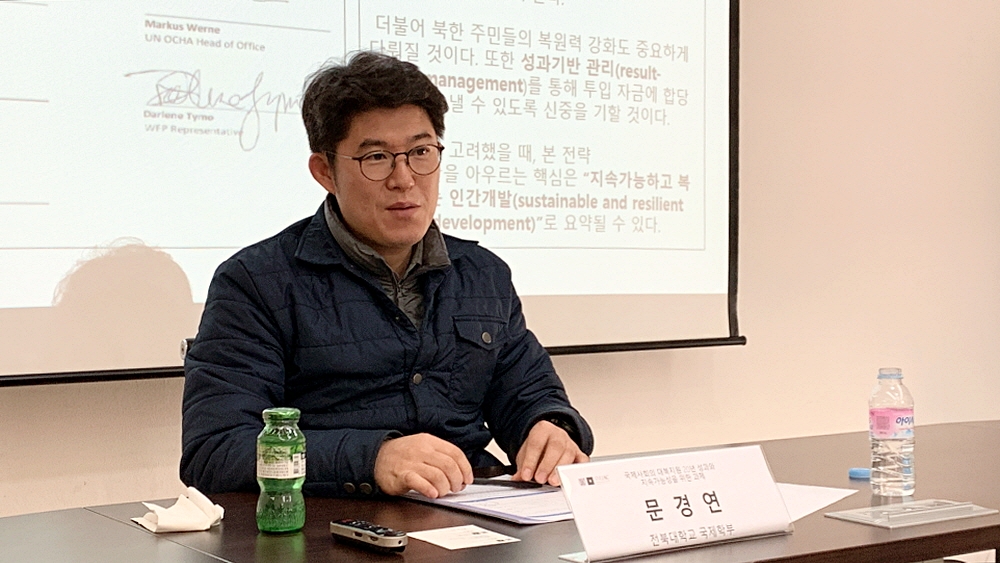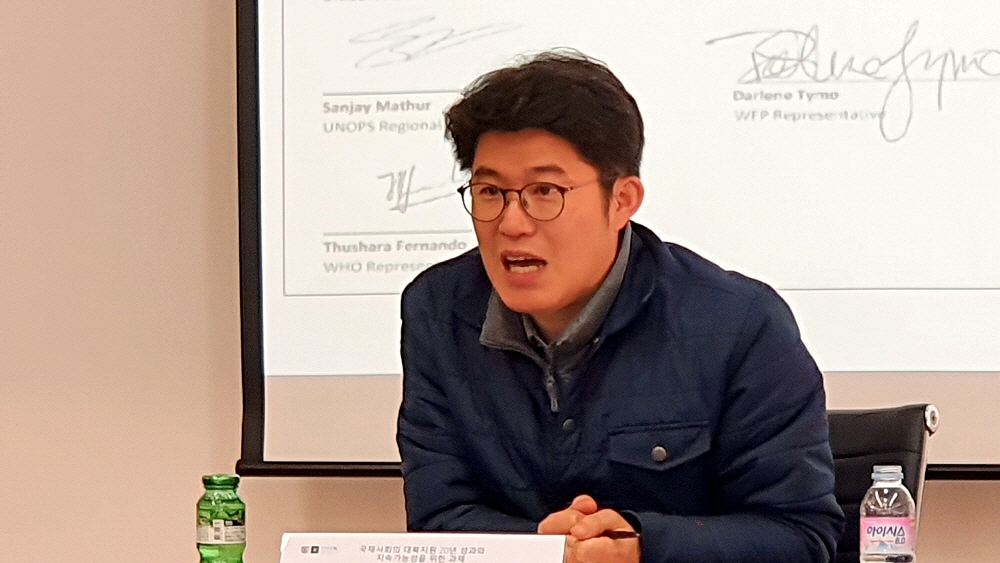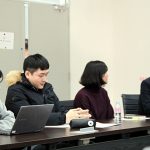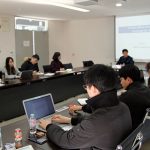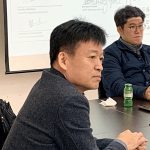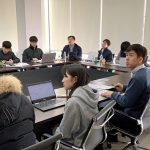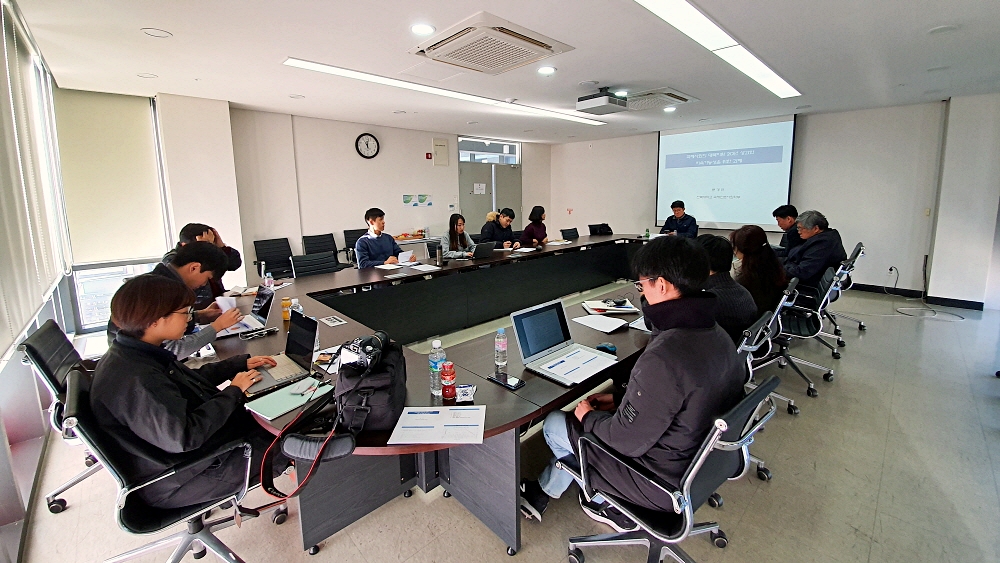Aid to North Korea: Impact and Challenges of Sustainable Development
- Date: November 29th, Friday, 2019 11:00-12:00
- Location: Room 406, SNUAC (Bldg. 101)
SNUAC International Development Cooperation Research Center is proceeding with activities to discover research topics for international development cooperation and strengthen our capacity by inviting experts for lectures and talks.
When North Korea requested international society for humanitarian aid after suffering from damages of large deluges in 1995, the Korean government and NGOs started to engage in aid projects for North Korea, continuing them for 20 years until 2015. The total amount of aid for North Korea in the past 20 years adds up to about 2% of North Korea’s total domestic production in that period. Especially in 1999 when the aid was the most active, the total domestic production of North Korea was around 4.8 billion dollars, with aid being around 400 million dollars, 8.3% of the total production. The aid for North Korea by international society including Korea was a provision of large-scale financial budgets that could influence the overall North Korean economy in various ways. Thus a critical examination of the last 20 years’ aid for North Korea and seeking effective measures of future North Korean aid must be the prerequisites of preparing strategies for North Korean development, for peaceful prosperity of the Korean peninsula.
Thus SNUAC International Development Cooperation Research Center is inviting Prof. Moon Kyungyon and other related parties to jointly suggest implications for policymaking such as establishing a paradigm on how aid for North Korea can harmoniously proceed in terms of alleviating North Korea’s humanitarian crisis and developing its economy, seeking a social consensus on the principles and methods of aid for North Korea so that the aid can continue regardless of changes in North Korean policies of South Korean governments, and ensuring that appropriate monitoring and assessment for North Korean aid are entailed for the South Korean government and civil society to accept.
Speaker: Prof. Kyungyon Moon (Chonbuk National University)
- (Present) Executive Board Member at Korea Association of International Development and Cooperation (Committee for Research)
- (Present) Deputy Researcher at North Korean Economic Research Institute, The Export-Import Bank of Korea (2014-2015)
- Research Professor at Graduate School of International Studies, Korea University (2013)
- Research Fellow at Institute for Poverty Alleviation and International Development, Yonsei University (2012)
On November 29th, SNUAC International Development Cooperation Research Center invited Prof. Kyungyon Moon (Chonbuk National University) to discuss the 20 years of international aid to North Korea and its sustainability.
According to Official Development Assistance Korea, the size of the Korean ODA is expected to be expanded from 0.15% to 0.30% of the gross national income. Prof. Moon noted that the normative agreement of the international society and situations in China and North Korea can operate as variables that influence the changes in the size of ODA. Along with a discussion, whether the aid to North Korea is for protecting the universal values such as humanitarian relief and execution of SDG which are also the essential dilemma of ODA, or a means of realizing national benefits such as diplomacy or economy, he suggested that there are dilemmas that exist as compounds of various elements. Such dilemmas divide into whether the aid to North Korea will be seen from a perspective of humanitarian support or development support, and discussions related to the size, method, responsible party, and purpose. However, Prof. Moon emphasized that even amidst such a dilemma, aid to North Korea worked as an opportunity for North Korea to learn the norms of international society and vice versa, and exchange or cooperation through NGOs and international organizations can complement the conversation channels and functions on the state level. Lastly, he shared that the UN strategic document released by North Korea in 2017 mentions the themes of international society such as approaches oriented around human rights and performance management under the objective of sustainable development, and suggested that both the public and the private sectors must cooperate to seek measures of aid based on demand and the realities.
After the lecture, participants carried out an in-depth discussion on finding the direction of Korean governmental and civil policy based on an overall understanding of developmental cooperation with North Korea.
Photos by DooWon Chang (Academic Reporter)

